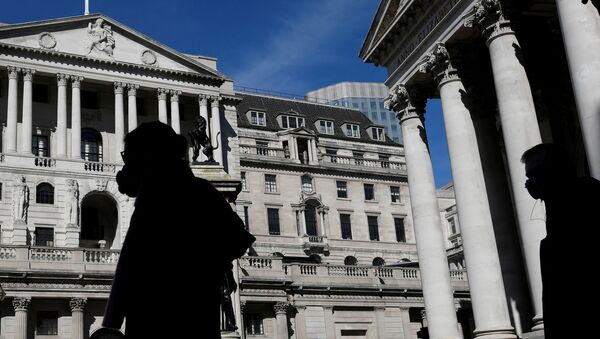Bank of England Governor Andrew Bailey has paved the way for negative interest rates after Britain began the sale of government bonds with an average yield of -0.003 percent on Wednesday, a move that reveals the true extent of the economic crisis awaiting the UK on its way out of the coronavirus lockdown, according to The Guardian.
In financial terms, a negative bond yield means that investors are effectively paying to lend money to the government instead of receiving a return on their investment. When bond yields are negative, it generally means investors are seeking a safe haven for their money instead of looking to earn.
The governor, who took office in March, reportedly said that the bank officials are looking into all options to assist recovering the economy from a “deep recession”. The officials have told MPs that it would be “foolish” to rule out cutting the cost of borrowing to below zero, according to the newspaper.
Bailey said that the central bank had kept adopting negative interest rates, along with other monetary tools, under “active review”.
“We do not rule things out as a matter of principle. That would be a foolish thing to do. But that doesn’t mean we rule things in either,” Bailey said, as cited by the outlet.
He argued that the benefits weaken as interest rates bear up zero and could be “counterproductive” when it goes into negative territory. However, he said that his crew is “looking carefully” at the experience of other central banks that have adopted negative interest rates.
The European Central Bank along with Japan’s central bank have already cut the rates to below zero due to the economic consequences of the coronavirus crisis.
Last week, the United Nations said it expected the coronavirus crisis to slash global economic output by $8.5 trillion over the next two years, with the world economy expected to contract 3.2 percent in 2020, while over 34 million people may be pushed into extreme poverty as nations struggle to reopen their economies after months of ham-fisted lockdowns.



